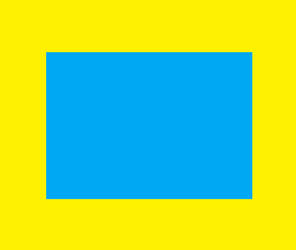ShopDreamUp AI ArtDreamUp
Deviation Actions
Literature Text
Finally, particles again at last!  Hi, guys!
Hi, guys!  Miss these bits?
Miss these bits?  Well, I sure did
Well, I sure did 
Today we're gonna do something straightforward! How cool is that?
But first.... let's talk about something!
Kanji in a nutshell is quite hard, they say. Really? Probably, because kids start from class 6 I heard in one source, and class 1 in the other. Damn the internet at times But then, they start with 一 being the first; and sadly enough, ひらがな at times just does not do it! Take pretty much anyone! It can mean moon, or beautiful, or cheap, or shit, or young, or ugly, or an insult, or a....
But then, they start with 一 being the first; and sadly enough, ひらがな at times just does not do it! Take pretty much anyone! It can mean moon, or beautiful, or cheap, or shit, or young, or ugly, or an insult, or a....
Reading 'or' too often becoming tiring? Thought so...
Thought so... 
 や.... など
や.... など 



Today we're gonna do something straightforward! How cool is that?
But first.... let's talk about something!
Kanji in a nutshell is quite hard, they say. Really? Probably, because kids start from class 6 I heard in one source, and class 1 in the other. Damn the internet at times
Reading 'or' too often becoming tiring?
や is the sister of と。 It also means 'or', but because I know jack about it, I can't tell you more  It has a very similar meaning to と, but still different; making her a fraternal twin sister of sorts. Remember the half- baked informative right above?
It has a very similar meaning to と, but still different; making her a fraternal twin sister of sorts. Remember the half- baked informative right above?  や will replace all those 'ors' and then end itself with など; the sidekick/husband.
や will replace all those 'ors' and then end itself with など; the sidekick/husband.
 や。。。など is the Japanese version of 'and... etc.' Used for more than 3 things normally. Varies for adjectives
や。。。など is the Japanese version of 'and... etc.' Used for more than 3 things normally. Varies for adjectives 
冷蔵庫にたまごやたなねぎなどがあります。 In the fridge there are eggs, milk, etc.
In the fridge there are eggs, milk, etc.
わたしはゆめいでふくざつできれいななどです。 I'm famous, complicated/brooding, pretty, etc.
I'm famous, complicated/brooding, pretty, etc.
どうぶつえんの中にたくさん動物があります;うさぎやそやさるなどがいます。
 Inside the zoo, there are many animals; there are rabbits, elephants, monkeys, etc...
Inside the zoo, there are many animals; there are rabbits, elephants, monkeys, etc...
For adjectives it is TOTALLY different because you cannot just replace と; there isn't any! So then, for the safe sake, just write ’くて’ ’で' like you always did-:
あなたの後ろに可愛くてさびしくて厳しいなどの少女がいます。 behind you there is a girl who's cute, pretty, strict, etc.
behind you there is a girl who's cute, pretty, strict, etc.
彼女のきょうしつはべんりでふくざつなでちさななどです。 Her class is convenient, complicated, small, etc.
Her class is convenient, complicated, small, etc.
Note- Do NOT use opposite adjectives in words like I just did without realising till now It'll sound stupid and make you seem unreliable as heck! So, do NOT!!]]
It'll sound stupid and make you seem unreliable as heck! So, do NOT!!]]
But oddly enough it's not everything
 :iconpinkroseplz: Difference between や。。。など、 のも </b>
:iconpinkroseplz: Difference between や。。。など、 のも </b>  :iconpinkroseplz:
:iconpinkroseplz:
冷蔵庫にたまごやたなねぎなどがあります。
わたしはゆめいでふくざつできれいななどです。
どうぶつえんの中にたくさん動物があります;うさぎやそやさるなどがいます。
For adjectives it is TOTALLY different because you cannot just replace と; there isn't any! So then, for the safe sake, just write ’くて’ ’で' like you always did-:
あなたの後ろに可愛くてさびしくて厳しいなどの少女がいます。
彼女のきょうしつはべんりでふくざつなでちさななどです。
Note- Do NOT use opposite adjectives in words like I just did without realising till now
But oddly enough it's not everything
Notice how the two are so similar? 
はい、このみせにくだまのがあります。 ももいろの色のも、しろいのも、あかいのもがあります。 Yup, we have fruits in this shop! There's pink, white, red, all of it here.
Yup, we have fruits in this shop! There's pink, white, red, all of it here.
Here のも is used for many qualities about ONE thing! Think- a dress with same design & cut, but different colours. That way.
Think- a dress with same design & cut, but different colours. That way.
But....
はい、このみせにくだまのがあります。 りんごやいちごやうめやももなどがあります。
 Yup, we have fruits in this shop. We've got apples & strawberries & plums, peaches, etc. here.
Yup, we have fruits in this shop. We've got apples & strawberries & plums, peaches, etc. here.
や。。。など is used for MANY DIFFERENT THINGS in one sentence! Plus it goes on practically forever
Plus it goes on practically forever 
Got it? すごい!
すごい! 
Yay, done! Summary-:
 や。。。など is Japanese for 'and..etc.'
や。。。など is Japanese for 'and..etc.'
 We use it when we're talking about many DIFFERENT things in 1 sentence.
We use it when we're talking about many DIFFERENT things in 1 sentence.
 For adjectives, instead of や, use their versions of and, and end with など. Sentence construction-:
For adjectives, instead of や, use their versions of and, and end with など. Sentence construction-:
Subject-はーイーけいようしくてany number of times-などーです
 use for more than 3 items. Sentence construction-:
use for more than 3 items. Sentence construction-:
Subject-に/のPrepositionにー Nounsーや(x any number of times) など-があります、います
Subject-は-Nouns-やNouns x n number of times-などーがーVerb*
Completely contextual!
これでおわります! 楽しむ!
楽しむ! 
はい、このみせにくだまのがあります。 ももいろの色のも、しろいのも、あかいのもがあります。
Here のも is used for many qualities about ONE thing!
But....
はい、このみせにくだまのがあります。 りんごやいちごやうめやももなどがあります。
や。。。など is used for MANY DIFFERENT THINGS in one sentence!
Got it?
Yay, done! Summary-:
Subject-はーイーけいようしくてany number of times-などーです
Subject-に/のPrepositionにー Nounsーや(x any number of times) など-があります、います
Subject-は-Nouns-やNouns x n number of times-などーがーVerb*
Completely contextual!
これでおわります!
Comments0
Join the community to add your comment. Already a deviant? Log In






![[F2U] Moon and Stars Divider](https://images-wixmp-ed30a86b8c4ca887773594c2.wixmp.com/f/57b946d3-87b5-4dc3-9af4-7b8c23022bbc/dccl3rf-fe99107c-9ee8-48c2-99b3-c3fb65284f0c.gif/v1/crop/w_184)









